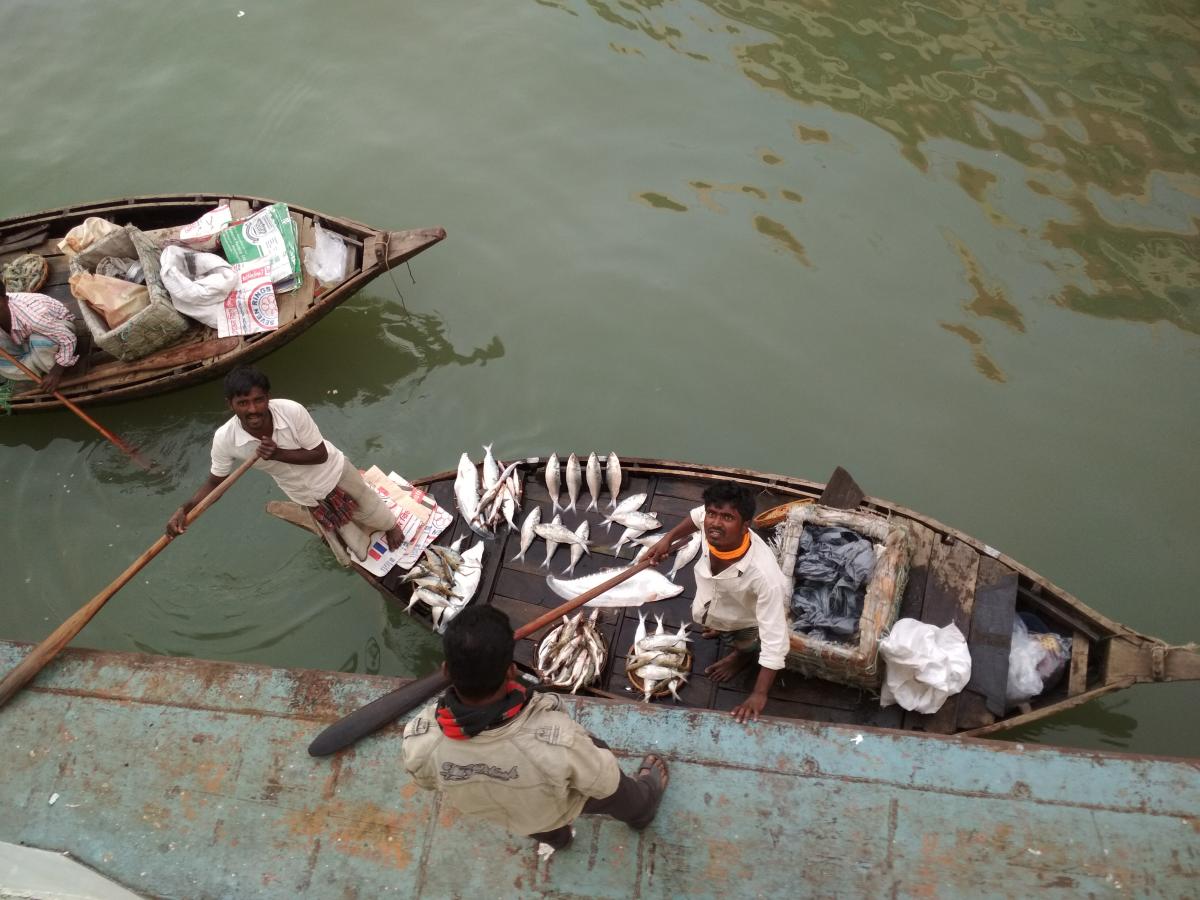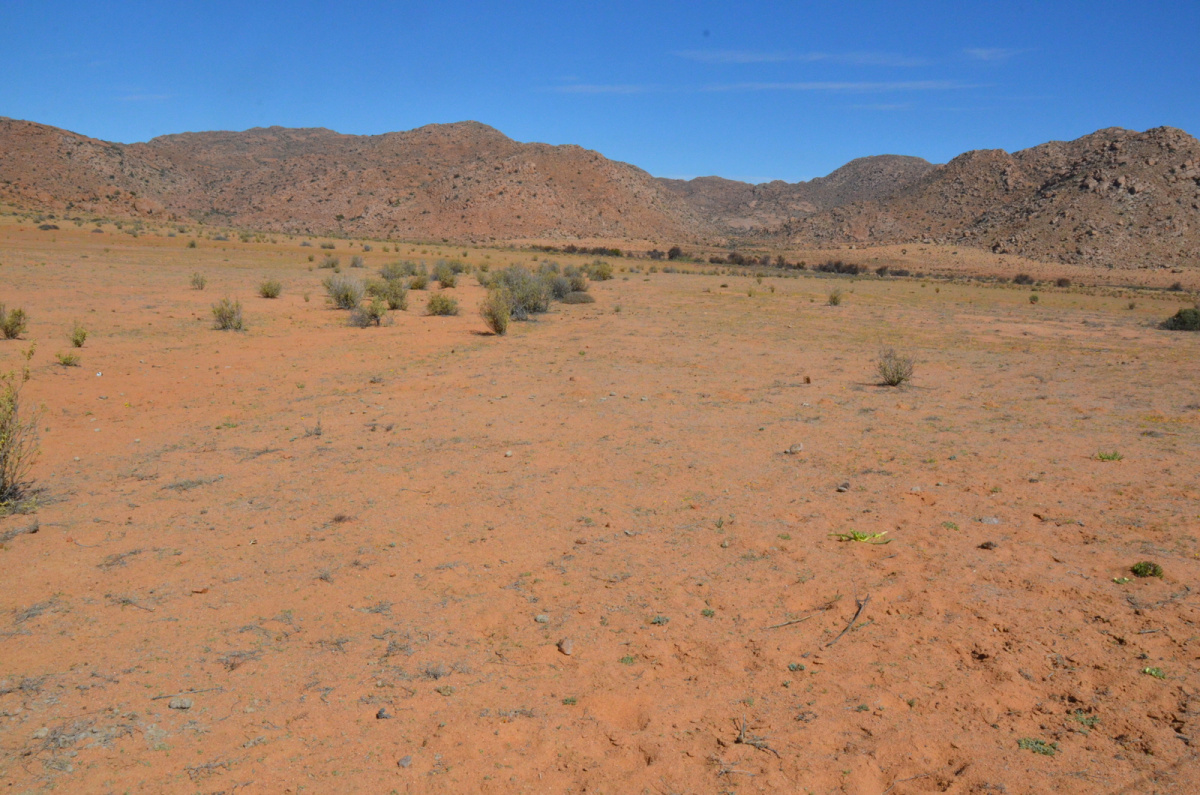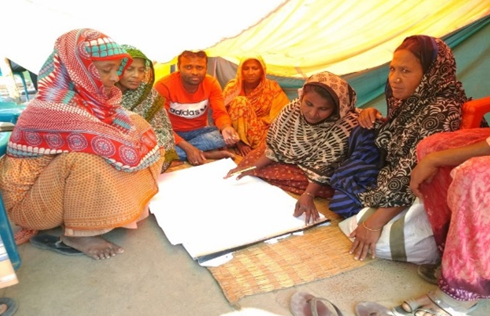New report lays groundwork for benefit sharing in Meghna River Basin
IUCN’s Building River Dialogue and Governance (BRIDGE) Ganges-Brahmaputra-Meghna (GBM) project has developed a profile and preliminary scoping study on Benefit sharing opportunities in the Meghna Basin for Bangladesh and India. The document is the first of its kind to address the lack of literature and dialogue on cooperative governance using a ‘benefit sharing’ approach in the Meghna Basin.

Fishermen with their catch on the Meghna River, Bangladesh
Photo: © Enamul Mazid Khan Siddique/Oxfam Bangladesh
Governance based on ‘benefit sharing’ is more holistic than traditional governance, which has historically been about allocating water. ‘Benefit sharing’ accounts for all ecosystem services the river basin provides. The report first consolidates information on the basin’s geophysical, ecological and cultural value to create a comprehensive profile of the basin. It then scopes out the variety of benefits provided by the basin and articulates the opportunities for these benefits to be maximised through joint development.
In the Meghna Basin, these opportunities include improved resilience to flood and erosion, food self-sufficiency and security, conservation of the basin’s cultural and ecological diversity, and diversification of trade between Bangladesh and India.
This document, along with a Benefit Opportunity Analysis Dialogue that took place in Dhaka in July, contributes to a six-step Benefit Opportunity Analysis Tool (BOAT) developed by the IUCN BRIDGE Programme. The six steps are 1) ‘identify benefits provided by the basin,’ 2) ‘identify stakeholders and potential equity issues,’ 3) ‘identify and build benefit-enhancing scenarios,’ 4) ‘assess and distribute benefits and costs,’ 5) ‘negotiate a benefit sharing agreement,’ and 6) ‘Strengthen the institutional arrangement for the implementation of the agreement.’ Benefit sharing opportunities in the Meghna Basin contributes to steps 1-3.
The BOAT tool is currently being implemented in the Meghna River Basin using lessons learned from implementation in other regions. These include 15 transboundary basins in Africa, Asia, Mesoamerica and South America, with greatest success in the Sio-Malaba-Malakis Basin shared by Kenya and Uganda.
Despite its transboundary nature and significance to livelihoods and biodiversity, the Meghna Basin is not often brought up in discussions related to transboundary water governance between Bangladesh and India. Available literature and information on shared water sources in South Asia mostly refers to the GBM Basin as a whole, with more emphasis on the Ganges and Brahmaputra river systems, and far less on the Meghna Basin.
The report will be widely disseminated among the key stakeholders in the Meghna Basin and will be used as a reference point to guide the development of a ‘transboundary benefit sharing strategy’ for the basin.
Read the Benefit sharing opportunities in the Meghna Basin report here.
The BRIDGE (Building River Dialogue and Governance) project aims to build water governance capacities through learning, demonstration, leadership, and consensus-building in trans-boundary hotspot river basins. Facilitated by IUCN and financed by the Water Diplomacy Programme of the Swiss Agency for Development and Cooperation (SDC), BRIDGE is a multi-regional project, implemented in 14 river basins located in South America, Meso-America, Africa and Asia.
In Asia, the BRIDGE project focuses on the 3S Basins (Sekong, Sesan and Sre Pok rivers shared by Cambodia, Viet Nam and Lao PDR) as well as the GBM Basin (Ganges-Brahmaputra-Meghna rivers shared by Bangladesh, Bhutan, China, India and Nepal). The BRIDGE GBM project is supported by the TROSA Programme of Oxfam Novib. The projects have provided opportunities for dialogue and training on hydrodiplomacy, and produced data and studies to support technical discussion for stakeholders from different sectors and levels.



